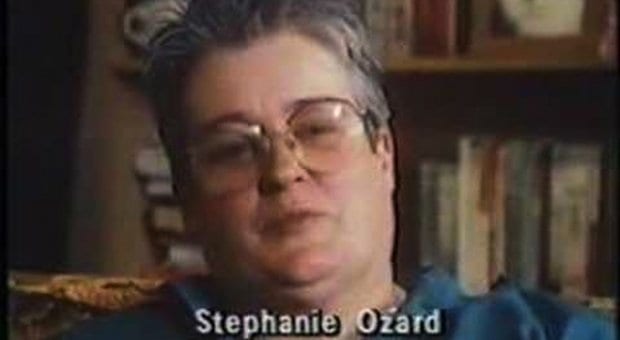Tucked away in the annals of the archives of the National Film Board of Canada is “an urgent and important piece of our history.” And it may never see the light of day.
Forbidden Love: The Unabashed Stories of Lesbian Lives is, in fact, forbidden.
But one professor has tried to liberate the seminal 1992 queer documentary.
Thomas Waugh, research chair in documentary film and in sexual representation at Concordia University in Montreal, recently wrote an open letter to the NFB, proposing that the government body dust off the award-winning film and make it available online.
Waugh doesn’t undersell the movie.
“[Forbidden Love is] one of the most successful documentaries in the Board’s history, both critically (eight awards) and financially,” he writes in his letter. “I saw the film at one of its premiers at the 1992 Montreal Lesbian and Gay film festival, joined the standing ovation it received and the station ovations have never stopped in the intervening two decades.”
He tells Xtra that the film’s history is undignified for a feature that is the “centre of our queer heritage.”
When the film was released, its footage and music was licensed for only a decade. So when 2002 came around, the film “silently disappeared,” Waugh says. But interest has peaked in recent years. Even though the film has been out of circulation for more than a decade, it has been the subject of a chapter in one American book looking at queer cinema and is the focus of a monograph exclusively about Forbidden Love, as part of a longer queer cinema series.
Waugh notes in his letter that the NFB would never consider withholding a film that carries that level of gravitas within the First Nations, Afro-Canadian, Jewish or Québécois communities. “Forbidden Love includes the oral histories of a range of Canadian lesbians, many now deceased. It belongs all the more, morally and culturally speaking, to Canada’s LGBTQ community,” he writes.
But there’s some hope yet.
Lynne Fernie directed Forbidden Love, alongside Aerlyn Weissman.
Fernie says that the pair had been working on getting the NFB to renew the rights to the film before Waugh’s letter, with assurances that the NFB had it “high on their list,” but after a little bit of public pressure, she got a call back with a clear message: “We’re on the case.”
The NFB has pegged the cost of renewing the rights to the film at around $65,000. For an agency plagued with deep cuts in recent years, that figure is staggering. And that cost wouldn’t even license the film into perpetuity — the same problem would probably arise in five or 10 years. That short-term reprieve would be “disastrous,” Waugh says.
There are a few solutions. The directors have suggested going into the studio and recutting the film to take out the pricy music — mostly 1950s pop hits — and add in music that’s available in the public domain. But the NFB says it isn’t that simple, as there’s also expensive archival footage in the film.
“We have not ruled out the idea of recutting the film, but it is not our preference,” says James Roberts, assistant director general of the NFB’s accessibility and asset management branch. “We prefer to respect and maintain the integrity of the original film.”
Waugh has suggested that the film’s rights could be simply renewed, with the patronage of the Academy of Canadian Cinema and Television. Fernie doesn’t think they’re interested. Beyond that, Waugh suggests, the funds could be raised from the queer community. Roberts says they don’t think that will be necessary.
Roberts would say only that “we don’t yet have anything conclusive, but it is our intention to find a way to renew the rights ourselves.”
Despite the NFB’s cryptic game plan, Fernie is optimistic. The two sides have been talking, and she thinks that the film can be available in time for next year’s WorldPride in Toronto. “The film board is putting together numbers,” she says. “I’m going to think positively.”
She admits that the whole situation was frustrating for a while, and says with a laugh, “They have it up there, and you can’t see it! Nyah nyah nyah nyah.”
But she says there is a route that could be relatively affordable. It’s an industry practice known as Most Favoured Nations. It’s essentially a tactic whereby small producers, especially documentary filmmakers, offer to pay all the rights-holders the same modest rate. If you agree to pay one licence-holder more, you have to pay everyone that much. That’s not an ideal solution, she says. “They don’t really want to talk to you for under $5,000.”
She’s confident, though, that the film would recoup its costs by WorldPride.
But even if Forbidden Love makes it online, Waugh says, there’s still some work to do. “When my 2006 book came out, it was full of discussions of the NFB queer turnaround,” he says. “But since then it’s been the desert.”
He says there’s been only a “trickle” of queer films from the NFB in recent years.
Roberts says that the NFB has 37 productions in its LGBT collection. Of those, nine are unavailable, two of which the NFB is actively trying to renew licences for, including Forbidden Love.
Waugh underlines that there is no “coherent, coordinated policy” and says that needs to be addressed.
Roberts says that while the NFB doesn’t have a codified policy on LGBT films, “it is our mandate to create and distribute works about the Canadian perspective on issues around the world and here in Canada.”
LaLa Salon launches its first women-only monthly event in Vancouver on Sun, Sept 15, with a screening of Forbidden Love at 5:30pm, with co-director Aerlyn Weissman in attendance.
The Keefer Bar, 135 Keefer St. $15. Look for LaLa Salon on Facebook for more information.


 Why you can trust Xtra
Why you can trust Xtra


